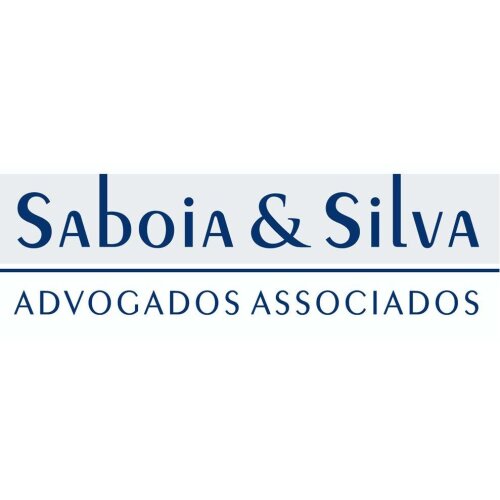Best Funds & Asset Management Lawyers in Brazil
Share your needs with us, get contacted by law firms.
Free. Takes 2 min.
Or refine your search by selecting a city:
List of the best lawyers in Brazil
About Funds & Asset Management Law in Brazil
Funds and asset management in Brazil refers to the set of legal rules, regulations, and market practices governing the operation, administration, and oversight of investment funds and asset management firms. This sector is crucial to Brazil's financial industry, offering individuals and institutions ways to invest collectively in diversified portfolios managed by professional managers. The regulatory environment is designed to protect investors, promote market integrity, and ensure transparency, making the sector both highly regulated and constantly evolving.
Why You May Need a Lawyer
Engaging a legal specialist in funds and asset management is often necessary in several key situations. Individuals and companies might seek legal advice during the formation or structuring of investment funds, regulatory compliance checks, fund registration with authorities, or in dispute resolution involving investors, managers, or regulatory agencies. Lawyers are also essential when interpreting complex contracts, understanding tax implications, managing cross-border investments, or navigating changes in local regulations. Proper legal guidance helps prevent costly mistakes and ensures that all operations comply with the relevant local and international standards.
Local Laws Overview
Funds and asset management activities in Brazil are mainly regulated by the Brazilian Securities and Exchange Commission (CVM). The CVM issues rules and guidelines that dictate how investment funds must be structured, managed, and marketed. Brazilian law recognizes several types of investment funds, including fixed income funds, equity funds, multi-market funds, and real estate funds (FII).
Fund managers must be authorized by the CVM and comply with various reporting and transparency requirements. Rules governing fiduciary duty, investor protection, and risk management are strictly enforced. Additionally, the Central Bank of Brazil oversees some aspects of asset management, particularly where these align with monetary and financial stability policies. Tax laws applicable to funds may change frequently, and cross-border activities often require additional compliance with foreign regulations.
Frequently Asked Questions
What is an investment fund in Brazil?
An investment fund in Brazil is a pool of resources from multiple investors managed by a professional firm or individual, with the aim of making collective investments in financial assets according to a defined strategy and risk profile.
Who regulates funds and asset management activities in Brazil?
The primary regulator is the Brazilian Securities and Exchange Commission (Comissão de Valores Mobiliários or CVM), with some oversight functions shared by the Central Bank of Brazil depending on the type of fund and assets managed.
Can foreigners invest in Brazilian funds?
Yes, foreigners can invest in Brazilian funds, but there are specific registration, tax, and foreign exchange requirements regulated by the CVM and the Central Bank of Brazil.
Are all types of funds allowed in Brazil?
Brazilian law allows several types of funds, such as fixed income, equity, multi-market, and real estate funds, among others. Each type must comply with particular regulatory requirements.
What are the responsibilities of a fund manager?
Fund managers in Brazil have fiduciary duties, must act in the best interests of investors, comply with risk management and disclosure requirements, and abide by all applicable CVM rules and relevant laws.
What taxes apply to investment funds in Brazil?
Taxation depends on the type of fund and investor. Common taxes include the Income Tax (Imposto de Renda), Tax on Financial Operations (IOF), and sometimes Service Tax (ISS), with withholding at source or at redemption. Tax rules may change, requiring continuous attention.
Do investors have recourse if things go wrong with a fund?
Investors can seek recourse through legal channels, such as complaints to the CVM, arbitration, or court actions, depending on the situation and the provisions in the fund’s documentation.
How are investment funds in Brazil structured legally?
Funds typically have a segregated structure, meaning their assets and liabilities are separated from those of the management company. They must have a manager, custodian, and administrator, each with defined legal duties.
Is there a minimum amount required to invest in Brazilian funds?
The minimum investment amount varies by fund type and strategy. Some funds are targeted at qualified or professional investors and may have high minimum thresholds, while others are designed for retail investors and have lower minimums.
What are the main risks of investing in a Brazilian fund?
Risks include market volatility, credit risk, liquidity risk, management risk, currency fluctuation (for foreign investors), and regulatory changes. It’s important to review all disclosures and risk statements before investing.
Additional Resources
For more information or assistance, these organizations and resources can be helpful:
- Brazilian Securities and Exchange Commission (CVM) - main regulatory authority for funds and securities
- Central Bank of Brazil - oversees certain financial institutions and foreign exchange transactions
- Brazilian Financial and Capital Markets Association (ANBIMA) - self-regulating agency providing guidance and education
- Brazilian Association of Investment Funds (ABVCAP) - promotes best practices in private equity and venture capital
- Specialized law firms and consultants focused on financial regulatory matters
Next Steps
If you need legal assistance regarding funds and asset management in Brazil, start by identifying the specific issue or question you have, such as fund formation, regulatory compliance, tax analysis, or dispute resolution. Gather all relevant documents, such as fund prospectuses, contracts, and correspondence. Next, consult with a lawyer or firm that has recognized expertise in Brazilian financial markets and regulatory law. They can help you understand your rights and obligations, ensure compliance with current regulations, and represent your interests before authorities or in court if necessary. Early legal advice greatly reduces risks and helps you make informed decisions in the complex Brazilian funds and asset management sector.
Lawzana helps you find the best lawyers and law firms in Brazil through a curated and pre-screened list of qualified legal professionals. Our platform offers rankings and detailed profiles of attorneys and law firms, allowing you to compare based on practice areas, including Funds & Asset Management, experience, and client feedback.
Each profile includes a description of the firm's areas of practice, client reviews, team members and partners, year of establishment, spoken languages, office locations, contact information, social media presence, and any published articles or resources. Most firms on our platform speak English and are experienced in both local and international legal matters.
Get a quote from top-rated law firms in Brazil — quickly, securely, and without unnecessary hassle.
Disclaimer:
The information provided on this page is for general informational purposes only and does not constitute legal advice. While we strive to ensure the accuracy and relevance of the content, legal information may change over time, and interpretations of the law can vary. You should always consult with a qualified legal professional for advice specific to your situation.
We disclaim all liability for actions taken or not taken based on the content of this page. If you believe any information is incorrect or outdated, please contact us, and we will review and update it where appropriate.
Browse funds & asset management law firms by city in Brazil
Refine your search by selecting a city.













